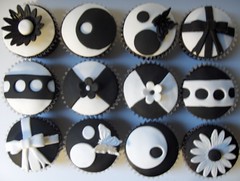I started writing songs when I was about 12, but it wasn’t until I was almost 20 that I took my first songwriting workshop. It was an 8 week course, facilitated by a fellow named Fred Booker. Fred was a real character and a great teacher, who was born in Chicagoand ended up living in Canada for reasons I never quite figured out. He would teach songwriting classes at Douglas College in Vancouver, but he also traveled and performed constantly, applying for arts grants to record and tour. So he pretty much made his living from music, not an easy thing to do at any time!

His style of writing was very blues-influenced with a smidgen of folk, totally character-driven and very entertaining. In the course he talked about exploring the guitar and doing different things with it without getting too much into theory, which was just what I needed and something I still remember. Sometimes he would sit in front of the class, clasping his head in his hands, looking for the right words to make his point, and then he’d deliver this compelling and passionate monologue on some aspect of songwriting that would mesmerize me. Yes! I knew EXACTLY what he meant! And there was a word for the technique, and others did the same thing too! Fred’s course introduced me to the lingo that described what I had always done instinctually, without labels or any thought to what I was actually doing. I knew what a verse and a chorus were, but what I didn’t have names for were things like “tension” and “contrast” and “dynamics”. I was so thrilled to listen to someone speak in my language and put words to my efforts.
At the risk of sounding like a prima donna, I was one of the stronger songwriters in that class. I was not very good when I think of it now, but most of my classmates were less experienced than I was. I was also the biggest chicken. When it came to introducing a new song to the class, which we each had to do at least once over the 8 week period, I was tortured with nerves, and on the night of the very last class where we each had to perform a song, I didn’t show up. What a coward, eh? 🙂 And here I am many years later, writing articles about songwriting for newer inductees, thinking about what Fred taught me and realizing how important it was for me to understand the mechanics of writing, not just the inspiration behind it. Being inspired is one thing; just letting it all spill out in one big blob of emotion and getting it out of your system.
But the craft is something entirely different…sometimes I think the crafting of a song is where true inspiration kicks in, because you have to mull it over and over and find some way of tying everything together, which takes so much time and patience…and ultimately talent! What Fred taught me was to THINK about what I was saying, to push my musical and lyrical boundaries and most importantly to enjoy the process. He made me think of myself as a songwriter, not just a person who happens to write songs.
What’s the difference? I think your attitude about yourself and your purpose changes when you take your craft more seriously…I don’t mean that you become an arrogant snit; in fact there is something humbling in the recognition that you can do something that really affects people. Not everyone hits the point in their songwriting where they want to take it outside the bedroom (or wherever they write!) into the rest of the world. Some never desire more from it than a way to entertain themselves, and so it should be. But some of us feel that nagging or yearning for others to hear what we’ve created.And even though I was a coward at the time, I realized the importance of making my message clear, and I took that new understanding and still carry it with me.
Fred came to see me perform at a place called the Soft Rock Café in a Vancouver neighbourhood called Kitsilano months after that last class . He came up to me afterwards and commented on one particular song where I had done some of that exploration of the guitar neck that he had spoken about. I knew he had been listening with a critical ear the whole evening, and it made me nervous, so I was very pleased to get a positive response. Not long after that, when I joined a band along with another fellow who had also taken Fred’s class, Fred came to visit us one night and we enthusiastically discussed songwriting for hours. It was a heady time. And then I lost touch with him.
Recently, I tried to find some trace of him, using the internet of course 🙂 I found a link to a book of poetry where one of the contributors was a guy named Fred Booker, but not much else. I still have his album “On The Road”, autographed, of course, and my guess is that Fred is probably still out there creating something, whether it’s a song or a poem, still thinking about the process and maybe even still teaching, who knows? I never had the chance to thank him for all that he gave me, so I’ll do it now. Thank you, Fred! What a great teacher you are!
[PS…this was an old article written perhaps five or six years ago that I recently decided to dust off and re-post. Just for fun I thought I’d look for Fred again too, and to my surprise I found him! He had recently written a book called “Adventures in Debt Collection” and was still living in the Vancouver area. I also found a picture of him, posted above. As I researched more into his book, however, much to my sorrow I discovered that Fred passed away in 2008 at the age of 69. I’m very sorry I never had the chance to thank him for his enthusiasm and inspiration. I found him and lost him again in the same day…there must be a song in that…IJ]


![Reblog this post [with Zemanta]](http://img.zemanta.com/reblog_e.png?x-id=f9650140-e2de-4b95-b3eb-7b6b19a3cfea)
![Reblog this post [with Zemanta]](http://img.zemanta.com/reblog_e.png?x-id=afd46f48-e5d8-42a5-b9ed-ef4d2a485fc9)
![Reblog this post [with Zemanta]](http://img.zemanta.com/reblog_e.png?x-id=523a654d-e4d0-425e-bc2f-97acabd96f58)

![Reblog this post [with Zemanta]](http://img.zemanta.com/reblog_e.png?x-id=201263ca-f575-4668-8e4a-9b9ee6cf8d68)